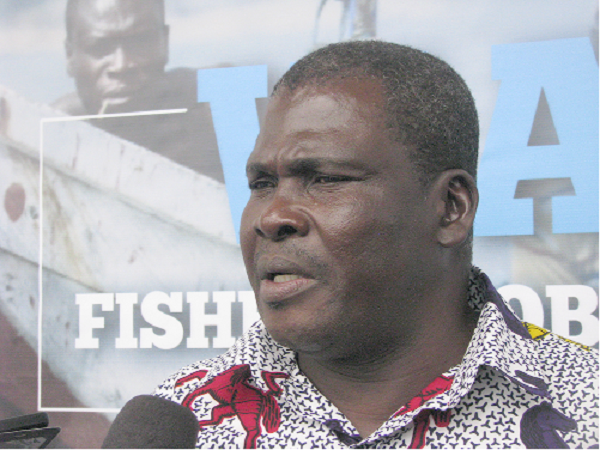
Closed Fishing season for all fleets same time not possible — Fisheries Commission
The implementation of the closed fishing season for all fleets at the same time will not be possible, says the Fisheries Commission.
The position of the commission, articulated by its Executive Director, Mr Micheal Arthur Dadzie, is a departure from suggestions by the Scientific and Technical Working Group (STWG) of the Sustainable Fisheries Management Project (SFMP) for the closed season to be made mandatory for all fishing fleets operating in Ghana’s waters at the same period.
Advertisement
Following the call by the STWG last September after evaluating the closed season last August, some artisanal fishermen have also called for the closed season to be implemented across board for all fishing vessels and not for a particular fleet at a different time as it was done this year.
The three sub areas, artisanal, semi industrial and industrial fishers, this year observed the closed season at different periods when fishing activities were suspended for a month.
While the government declared May 15 to June 15 this year as closed season for artisanal or canoe fishing in the country, August 1 to September 30, this year was observed by industrial trawlers as a closed season, with the industrial or tuna sector having observed the season from January 1 to the end of February this year.
Different regulations
At a workshop for journalists on fisheries management, Mr Dadzie explained that the closed fishing season could not be implemented at the same time for all fleets because the trawler industry, which was mainly for the harvesting of tuna, was governed and regulated by the International Commission for the Conservation of Atlantic Tuna (ICCAT).
The ICCAT, he said, had designated January and February as the closed season for tuna because of the migratory nature of tuna species. That season was also the spawning period for tuna.
"Tuna is regulated differently so we cannot shift its closed season to the same time for the others,” he said.
However, Mr Dadzie added, "our major problem is with the artisanal fishers who constitute the majority, with 14,000 canoes and the number of mouths to feed. Two years ago, we attempted to implement the closed season and they resisted," the executive director of the commission said.
He said even though the scientists had indicated that the best period to close the season was during August and September, "we as regulators and managers advocate demand driven approach and allow the fishermen to decide on the date they prefered."
Artisanal fishers, he said, kicked against August to September as they claimed that was the peak season for harvesting but they did not know that was the period the fish laid their eggs (spawning).
When the fisherfolk agreed on May and June, he said, "we accepted it and while we implemented the closed season the scientists collected data."
The ministry, Mr Dadzie said, would present the findings to the fishers and let them know that "the maximum results were not reached because the timing was not correct."
Dwindling stock
Over the past two decades, Ghana's fisheries sector has seen a massive decline, with experts attributing the situation to weak governance in the fishing sector.
Mr Dadzie urged all stakeholders, including fishermen, fish processors, fish traders, boat owners, scientists, civil society and the media to collaborate and save the fisheries sector from collapse.
The Centre for Coastal Management (CCM) at the University of Cape Coast organised the workshop at the Ainoo Ansah Farms, Okyereko, near Winneba, in the Central Region.
It was arranged in collaboration with Nature Today Ghana, a non-profit organisation with focus on the effective use of natural resources and the United States Agency for International Development (USAID).



